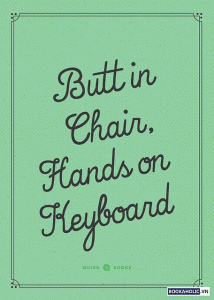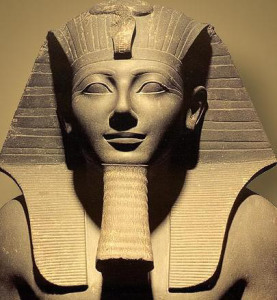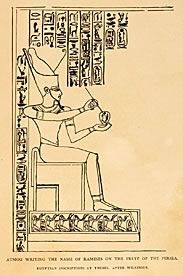Terri Herman-Poncé's Blog: Terri Herman-Ponce, page 5
October 16, 2016
What It’s (Really) Like to Date (or Marry) an Author
Authors are a different breed. We see life differently. Experience life differently. Live life differently.
And if you’re one of the lucky ones to either date an author or be married to one, there are a few things you should know. Consider them hints on how to live with a person who, for the most part, you may never truly understand.
October 2, 2016
Secrets Readers Don’t Know about Authors
A lot goes on behind the scenes in getting a book published. Stuff that readers don’t know and probably don’t need to know. Because, let’s face it, all a reader cares about is a story that takes them out of the real world and into another that, when well done, leaves them wanting more even after they’ve reached The End.
But, because I like to have fun, I figured I’d share some secrets readers may not know about authors. It’s a way of poking fun at an author’s reality (at least mine!). So let’s peel back Oz’s curtain, shall we?

copyright Dajana Fabjanovich | flickr
We pretend the writing is going well when it isn’t. Ask a writer how their story is going and you’ll hear, “Oh, it’s all finally coming together,” or “I’ve hit a rough spot in the middle, but I know I’ll work it out,” or “I’ve got an idea for another book, but I have to finish this one first.” However, that’s all code for, “I’m halfway through this book and I have no idea where it’s going,” or “I’ve written myself into a corner, and I’m freaking out because I have a deadline in three weeks!” or “I’ve got an idea for another book because I’ve started hating the one I’m writing right now.”
Writing books is a lonely business. We sit with our laptop or tablet, alone, and try to bang out story day after day. But we can’t have interruptions because that’ll mess with our creative juju. Which makes us feel alone. So we try to explain where our heads are at with loved ones, who try to understand us but really don’t, because we need an outlet to vent. Which is why we commiserate with other authors because only other authors understand the lonely nature of writing. Which is why…
We all have a stash of something to help us through writing stresses, and we usually indulge at our keyboard. Chocolate. Potato chips. Beer. Martinis. Gummy bears. Ice cream. Red wine. White wine. Diet soda. Burgers and fries. Scotch. Oreos. Mac and cheese. Pizza. Slurpees…

copyright Bookaholic | flickr
We procrastinate. A lot. A little. But we all do it. And when we do, we get frustrated. And when that happens, we move on to chocolate, or potato chips, or beer, or martinis…
Staring at a blank screen (writer’s block) scares the crap out of us. We pretend it doesn’t exist. We pretend it doesn’t bother us. We try to write anything, even if it has nothing to do with the current story we’re working on, to get the creative spark going again. And if the writer’s block lasts longer than we’re comfortable with, we move on to chocolate, or potato chips, or beer, or martinis…
By the time we get to The End of the first draft, we feel like we’ve birthed quintuplets. Naturally. But then we have to go back and edit the draft, and that feels like we’re birthing five more. Which leads to chocolate, or potato chips, or beer, or martinis…
Writing an 80,000 word novel is a lot easier than writing a one-page synopsis. When we’re faced with the dreaded synopsis (which is a dirty word in our business), we’ll reach out to fellow writer friends to bitch and moan that we have to do it. Which leads to other authors commiserating with us over our mutual pain. Which leads to those other authors suggesting we indulge in chocolate, or potato chips, or beer, or martinis…
Our characters are real people in our heads. We talk to them. Ask them questions. Imagine them eating and sleeping and having sex. Fighting and shopping and, yes, even farting or burping. We watch movies and imagine how our own characters would react in certain scenes. We spend entire days with them in our heads, but to us it feels like they’re right there beside us. For real. Often, we know our characters better than the people closest to us in real life. Often, we prefer it that way.
We speak in code. We look forward to getting The Call but are more than happy to SP if we can, and we always feel like it’s Christmas morning when ARCs arrive. Many of us question if we’re YA or SFF or TT, but will also try out UF or WF or XG, if nothing really fits. Some of us also really get into NaNoWriMo (but not me).
Writers sometimes think the words they’ve written are the best they’ve written in a long time. We often consider it a good sign when we can’t tell the difference.
Our search histories could raise red flags. To make our books realistic, our research takes us to some very questionable websites. ‘Nuf said.
Some of us still write story longhand. I finally gave that up three years ago, after doing it for nearly 17 years. It was a big adjustment. Oreos helped me through.
Some of us see the scene in our head and type with our eyes closed. But not me. If I did, I’d put my fingers on the wrong keys…and think it was the best thing I’d written in a long time.
We love our fans and readers. Which may not be a secret after all.
September 25, 2016
Lies We Tell Ourselves That Keep Us from Being Happy
Lies.
We tell them to others, but we mostly tell them to ourselves.
How many of these lies have you fallen victim to, personally?
He or she will change.
I’ll do it “one day”.
If I had more time, I’d do X, Y, and Z.
If I could just have X, everything would be so much better.
I’m stuck.
I’m not ready to do X.
I’m not good enough.
“The truth is, if we’re not happy now, we won’t be happy when we get ‘the prize’—the love interest, the pay raise, the ‘perfect’ body. Remember, many of the things you have in your life now were once things you wished for. There is no magic ‘thing’ eluding you.”
These lies, and the ways to overcome them, are explored by a great blog post I just had to share (and yes, you guessed it — I found it on greatist.com).
Have a look for yourself — and at yourself. You won’t be sorry.
September 18, 2016
Love Poems: The Ancient Egyptians Knew How to Get Their Sexy On
Say “Ancient Egyptians” and people pretty much think about their love affair with pyramids, the afterlife, gold and jewels, wigs, eye kohl, and tombs. But did you know the Ancient Egyptians also had a love affair with poems?
What makes Ancient Egyptian poetry so fascinating is that it gives us, today, a glimpse into what their real, daily life was like. And unlike us, today, the Ancient Egyptians had no hangups about sex. It was considered a normal and vital part of life (and even their afterlife!). In short, they knew how to get their sexy on when it came to feelings of the heart.
Here are some wonderful examples.
September 4, 2016
Amazing Things I Learn about My Characters
I love all the characters I write in my books. The good characters and the bad characters. The goofy and the serious. The messed up and the semi-normal. What you should know is that all of my characters originate from somewhere, and are either based on parts of me or fictionalized versions of people in my head or that I meet along the way. However, in some cases, a character is fictionally based on someone who lived in the long-ago past.
So here’s a nugget I’m going to share with you: Pharaoh, in my Past Life Series, is based on Thutmose III. There, I’ve said it. The secret is finally out. I’ve long been debating whether or not to expose this little tidbit, and as time went on I realized that my ancient Egyptian storyline was becoming much more detailed, to the point that I knew some smarty pants would eventually make the connection and see the character for who he really was…and is.

So here are some really interesting nuggets about Thutmose III — Egypt’s Warrior Pharaoh — that drive his story in my Series:
His birth name was probably Djehutymes III in Egyptian, but he is frequently referred to by his Greek name of Tuthmosis (Born of the god Thoth). He is also known as Thutmose III, Thutmosis, and his Throne name was Men-kheper-re, which means Lasting is the Manifestation of Re.
He was co-regent with his aunt, Hatshepsut, for the first 21 years of his reign because he was too young to rule Egypt when he became Pharaoh.
He was called the Napoleon of Egypt and considered a military genius.
He never lost a battle and is recorded to have captured 350 cities!

The largest battle Thutmose III ever fought was the Battle of Megiddo, which forced the Canaanite arms out of the land.
He was an excellent administrator and statesman, and an accomplished horseman, archer, athlete, and discriminating patron of the arts.
Thutmose III didn’t care for pompous, self-indulgent activities and seems to have been a sincere and fair-minded man.
He had 7 wives.
He stood at 5ft 3.58in.
Cleopatra’s Needles were constructed during his reign. Two of those obelisks are now in New York City and London (and, unfortunately, eroding due to exposure to elements and man).
Thutmose III constructed FIFTY temples during his time as Pharaoh.
He reigned over Egypt for 54 years!
 His tomb was discovered in 1898 by Victor Loret in the Valley of the Kings, however, according to archaeological records, “Happily the face, which had been plastered over with pitch at the time of embalming, did not suffer at all from this rough treatment, and appeared intact when the protecting mask was removed. Its appearance does not answer to our ideal of the conqueror. His statues, though not representing him as a type of manly beauty, yet give him refined, intelligent features, but a comparison with the mummy shows that the artists have idealised their model. The forehead is abnormally low, the eyes deeply sunk, the jaw heavy, the lips thick, and the cheek-bones extremely prominent; the whole recalling the physiognomy of Thutmosis II, though with a greater show of energy.”
His tomb was discovered in 1898 by Victor Loret in the Valley of the Kings, however, according to archaeological records, “Happily the face, which had been plastered over with pitch at the time of embalming, did not suffer at all from this rough treatment, and appeared intact when the protecting mask was removed. Its appearance does not answer to our ideal of the conqueror. His statues, though not representing him as a type of manly beauty, yet give him refined, intelligent features, but a comparison with the mummy shows that the artists have idealised their model. The forehead is abnormally low, the eyes deeply sunk, the jaw heavy, the lips thick, and the cheek-bones extremely prominent; the whole recalling the physiognomy of Thutmosis II, though with a greater show of energy.”So Thutmose III may not have physically lived up to our ideal of what a conqueror of his caliber looked like, but his images are proof that even the ancient Egyptians told tall tales. It was their way of ensuring the people saw their Pharaoh as he was supposed to be envisioned: as the powerful son of their all-powerful and ever-present god, Amun.
___________________________________________________
Copyright © 2012-2016 · All Rights Reserved · TerriPonce.com
Filed under: Stories Behind The Stories Tagged: ancient Egypt, ancient Egyptians, ancient history, great characters, Past Life series, Pharaoh, self publishing, Thutmose III, writing, writing fiction








August 21, 2016
The Art of Writing: How Books Were Born
I’m very passionate about ancient Egypt and the ancients’ way of life. Yeah, yeah, I know “passionate” is an understatement, but the more I research ancient history for my Past Life Series, the more interesting things I find along the way.
My latest discovery led me to uncovering some fascinating tidbits about written language, which evolved as man became more of a communicator and thinker.

From The History of the Art of Writing by Henry Smith Williams, 1901
Did you know:
While the English alphabet contains 26 letters, the ancient Egyptians had more than 700 different hieroglyph signs.
Scrolls were the first form of editable record keeping texts.
The history of scrolls dates back to ancient Egypt and later formats were used in China.
Ancient Egyptian hieroglyphics were impressed on clay tablets for record keeping, and the earliest forms of Egyptian writing are dated to 3000 B.C.
Egyptians began writing around the same time as the Sumerians. Their written characters, known as hieroglyphs, come from the Greek word that means “sacred carving.”
Know what the difference between hieroglyphics and hieroglyphs is? Hieroglyphics are a writing system developed in ancient Egypt that use picture symbols to convey concepts and ideas. Hieroglyphs are pictographic characters in the ancient Egyptian writing system. In other words, hieroglyphs are used in hieroglyphics.
Papyrus scrolls served many functions for accounting, record keeping, funerary texts and art.
Ancient Egyptians often used charcoal or soot to form black lettering on papyrus. For other pigments they used iron oxide, malachite, and yellow ochre. Arsenic-based pigments like realgar and orpiment were used to create red and yellow colors.
Scribes kept their brushes in palettes made of wood and sometimes ivory, with depressions designed to hold the black and red inks.
Documents were typically stored in wooden chests, sacred statues, or jars depending on the content of the writings.
Ancient Egyptians wrote most often with reed pens on papyrus scrolls and bound them between two wooden covers to make…you guessed it…books!
So the next time you open a paper book, or even your ereader, think about the history behind those written words. Without the ancient Egyptians, who knows where our written form would be today.
___________________________________________________
Copyright © 2012-2016 · All Rights Reserved · TerriPonce.com
Filed under: Stories Behind The Stories Tagged: ancient Egypt, ancient history, ancient man, book research, books, interesting facts, writing








August 7, 2016
Taming the Wanting Mind — Just What Is Enough?

graphicsdunia4u/Adobe Stock | greatist.com
How often have you found yourself wanting something so badly that you crossed your fingers, said prayers, or talked incessantly about it hoping it’ll come your way…and then gotten that very thing only to discover it wasn’t everything you hoped it would be?
How often have you craved something to the point of near obsession?
How often have you purchased something on a whim — food, clothing, jewelry, fill-in-the-blank — and then brought the item home only to realize you really didn’t need it or want it in the first place?
“Our society often conditions and encourages us to look outside of ourselves for happiness. The notion that this moment is not okay as it is encourages wanting minds and overconsumption.”
Thought-provoking questions, don’t you think? So how do you tame the “wanting mind” anyway? How do we move past the greedy culture we’re part of and realize that more isn’t always better? That life is at it’s most beautiful, and most fulfilling, when we focus on simplicity instead?
“When we know we are enough and have enough, we can be more generous and let go more easily. True contentment is not about acquiring more, but being satisfied with greater simplicity and fulfilled by what you already have.”
Read this wonderful post from Greatist.com. It’s a true gem.
___________________________________________________
Copyright © 2012-2016 · All Rights Reserved · TerriPonce.com
Filed under: Stories Behind The Stories Tagged: decision making, greatist.com, greed, happiness, mental-health, psychology, self improvement








July 17, 2016
Are Mobile Devices Making Us Rude?
Warning. Slight rant ahead.
During the past week, in ONE day, I was:
Bumped into and knocked off balance while rounding a street corner (because someone had their head buried in their mobile device)
Almost spilled on with my soup when someone got up from their seat at a takeout restaurant as I passed by (because they had their head buried in their mobile device)
Slammed into while riding the subway when the train came to an abrupt halt (because someone had their head buried in their mobile device)
Barreled into as I entered the turnstile to my office building even though I was already badged in (because someone had their head buried in their mobile device)
Stuck at a green light that eventually turned red, keeping the line of cars from moving (because someone had their head buried in their mobile device)
And should I also mention all the people I talked to who didn’t look at me during the discussion (because they had their head buried in their mobile device)?

copyright missapocok | Flickr
What’s happened to us? Have common courtesies been thrown out the window because people have decided that it’s more important to be glued to cell phones than paying attention to what’s going on around them? Have we forgotten that we’re sharing space with other individuals who are also in the home or office, or on the sidewalk or road? Have we become that self-centered that we think it’s okay to step on someone else’s feet or knock them down or spill a beverage on them because we think the cell phone is more important than politeness and civility?
I’m utterly flummoxed.
And yes, that’s a toned down word for what I’m really thinking.
Because in every instance, I was the one who was glared at or cursed at for a situation the offending party thought was my fault.
I understand that mobile technology helps us. That it keeps us connected to important information like news and emails and appointments. But the key word here, folks, is “important”, and “important” doesn’t equate to “everything”. It’s not necessary to check your Facebook feed while you’re walking through a crowd. It’s not necessary to view email while sitting at a red light. It’s not necessary to read about an entertainer’s latest house purchase or lavish wedding or public faux pas while people are trying to get in and out of a building.
Because not everything happening on your mobile device is important.
Much like I said in a recent blog, “Our devices hold out the false promise that there is something more important, more urgent, more interesting than our present-moment experience.” And that false sense of urgency is making us rude. I’m sorry, but it is. I’m all for staying connected. I really, truly am. But can we do it more mindfully, and with the understanding and acceptance that we’re sharing space with other people?
If not, then maybe it’s time to decide if you have an addiction to your mobile device.
/end of rant
Thoughts, anyone?
___________________________________________________
Copyright © 2012-2016 · All Rights Reserved · TerriPonce.com
Filed under: Stories Behind The Stories Tagged: bad manners, manners, mobile devices, mobile technology, rudeness








July 10, 2016
Kill the Soulmate (and the myth of the perfect partner)
It’s everywhere. The idea of the perfect partner. You see them on TV and in movies, and read about them in books. They’re men and women depicted as the person who completes you. The person who, through some design of Fate, somehow “gets you”.

copyright Kirsten Rudberg | Flickr
But just how realistic is this concept of a soulmate? Particularly when you’re in a relationship and can’t help but wonder if the guy snoring next to you in bed, or the woman slurping her coffee across the table, is really the best you can do.
Is there really someone around the corner who is better for us? Are we really missing out on that one perfect person? Or are we caught in a cycle of idealization in which we constantly seek out someone who’s better suited for us when, in fact, that “perfect person” is already by our side?
“This soulmate trap is subconscious and powerful. Like a shark, it lurks until a moment of disgruntlement invites it to take a chomp out of your contentment. So what to do? We must kill the soulmate.”
Want to know how to “look for what you love about your mate, not the ways you think they fall short”? Click here for Mindful’s wonderful refresher on how to accept your perfectly imperfect mate because, in case you haven’t noticed, you’re perfectly imperfect, too.[image error]
___________________________________________________
Copyright © 2012-2016 · All Rights Reserved · TerriPonce.com
Filed under: Stories Behind The Stories Tagged: greatist.com, happiness, love, mental-health, psychology, romantic partner, self improvement, soul mate








July 3, 2016
REVIEW: Going Solo by Tara Mills
Every now and then, I surprise myself.
Every now and then, a book surprises me more.
I’ve been a fan of Tara Mills for some time, having started reading her stuff years ago and keeping with it ever since. But here’s the thing. There are only so many hours in a day, and a gajillion books available on Amazon that you can choose from. Okay, maybe not a gajillion, but definitely a lot. And because I love to read almost as much as I love to write, I’ve acquired a to-be-read pile on my iPad that’s fairly substantial. That’s when I realized I wanted to make more time for reading and decided to start making a dent in that pile, so I picked up Going Solo.
Now, fans of mine will know I’m not a huge romance fan. I write books with romantic elements, yes, but I tend to shy away from reading the genre simply because it typically doesn’t resonate with me. But when I do buy a romance novel and read it, it’s for a very specific reason. In this case, Mills has a style I adore. She doesn’t rely on clichés to tell story, she doesn’t write about bodice-ripping, and she definitely doesn’t write about characters that need something external to them to fix a flaw or a damaged past. I should also add that even using the terms “hero” and “heroine” for Mills’s work feels wrong. She just writes from the heart, and she writes what’s real.
So here’s the thing about Tara Mills’s writing that grabs me. Her voice is unique, and her command of language and storytelling are strong. She can write opening chapters (hell, she can write opening paragraphs) that grab, and she can write in a way that will keep your attention until The End. More than that, she offers rich, descriptive worlds and characters that make you feel as if you’re right there in the middle of it all with them.
Hmm…somehow I digressed. But maybe all that backstory about Mills is important because all those things play a critical role in what works for Going Solo. In the opening pages it becomes obvious to the reader that you’re in very deft storytelling hands. The storyline is clear, the stakes are evident, and the hero and heroine (ahem, I really don’t like using those words!) are so far pulled into their own respective corners it’s no wonder they don’t immediately get along.
Which is where all the fun begins.
Shasta is a singer who blows out her vocal chords during a concert and who is forced to take vocal training from Blake, a guy who seems to have a stick up his ass and a desire to make her life difficult because she’s clueless about singing. A big star, yes, but she has no idea how to practice scales much less read a lick of music. All along, her singing has just come naturally to her. This is a serious frustration for Blake, who’s lived music for most of his life and who takes the craft seriously but who can’t understand how someone with such raw talent and stage power could so easily dismiss the gift she’s been given. And, worse, she’s pursuing it with a group that doesn’t seem to recognize her talent (because they don’t know better at the time) or that she’s playing to the wrong genre and crowd.
What follows is a story that dives into the damaged history of both these very realistic characters and finds a way to bring out the best in both of them. It’s a bit of an unconventional romance, too, which proves that what someone sees on the surface isn’t necessarily what you’ll find on the inside — if only you’re willing to look.
Going Solo is about self acceptance, and finding inner strength and happiness even if it means letting go of the comfortable route and embracing the unknown. It also offers up a wonderful reminder in life: sometimes the people we’re closest to can be our most demanding critics, but often it’s because they see the potential in us before we do.
And when that happens out of love? Well, it’s all the sweeter.
5 stars
___________________________________________________
Copyright © 2012-2016 · All Rights Reserved · TerriPonce.com
Filed under: Stories Behind The Stories Tagged: book reviews, contemporary romance, Going Solo, romance, Tara Mills, writing, writing fiction












